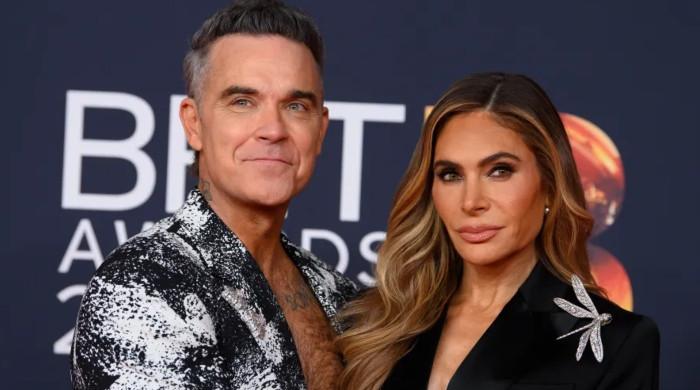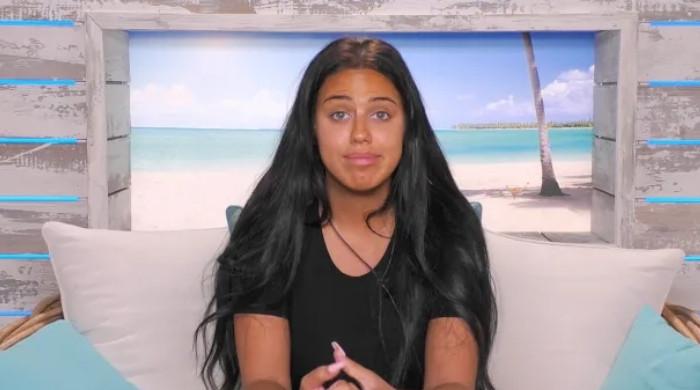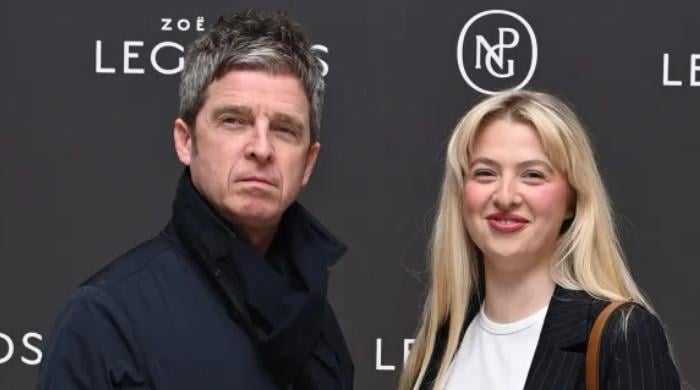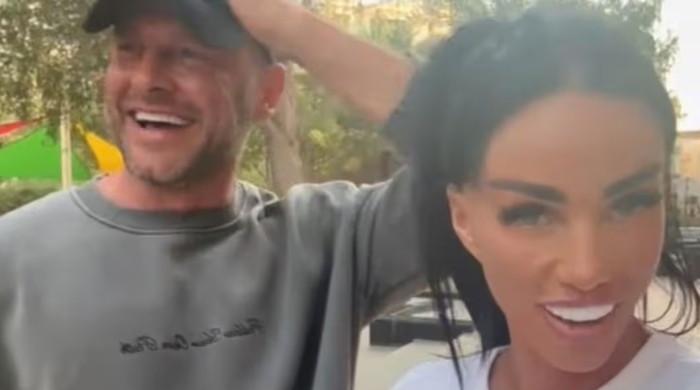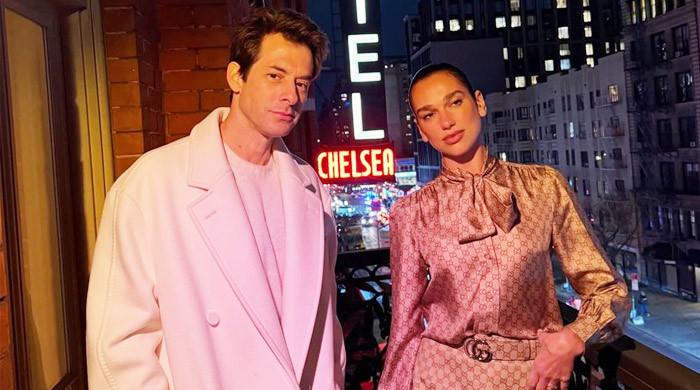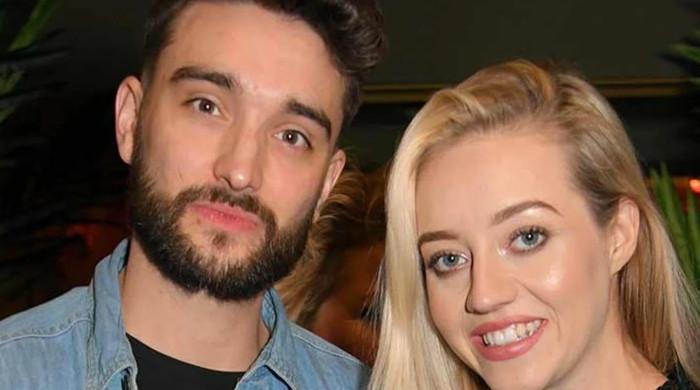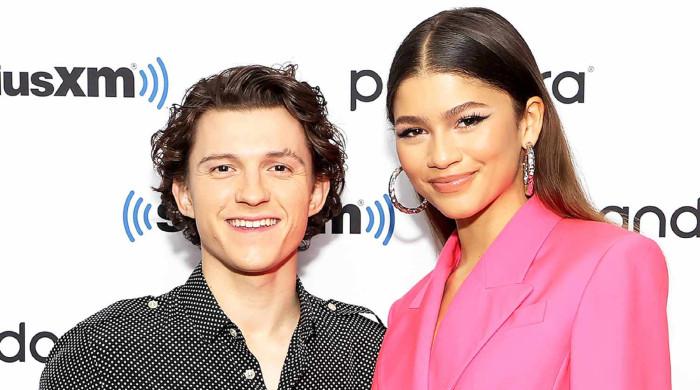Meghan Markle, Harry write open letter to G20 leaders over vaccine commitments
Meghan Markle and Prince Harry call on world leaders to provide COVID-19 vaccines to low-income countries
October 29, 2021
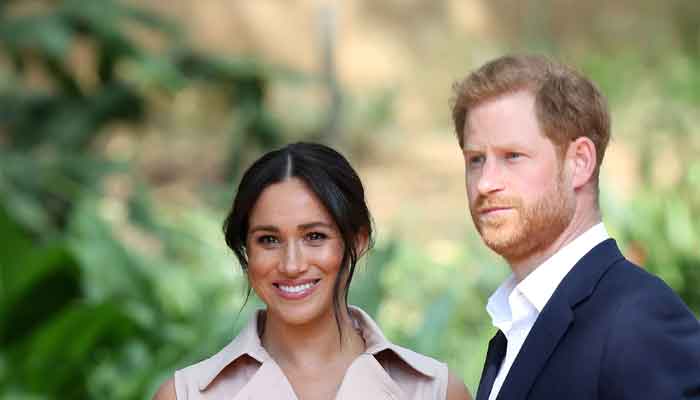
Prince Harry, Meghan Markle and WHO's Dr Tedros Adhanom Ghebreyesus have written an open letter to G20 leaders, asking about the vaccine doses they promised to low-income countries.
“There are many crises that you must grapple with this weekend,” they write. “Yet, in many ways, making headway on these priorities depends on whether we can beat this pandemic.
Cooperation of historic proportion is the only solution. Lives literally depend on it.”
Below is the full text of the open letter:
"When the leaders of the world’s wealthiest nations met at the G7 Summit in June, they collectively announced that 1 billion doses of COVID-19 vaccines would be sent to low- and low-and-middle-income countries to help vaccinate the world. Pharmaceutical companies have pledged almost the same.
Yet, as several nations still don’t even have enough vaccines for their own health workers, the world is left asking: Where are the doses?
Of the almost 7 billion doses that have been administered globally, just 3 percent of people in low-income countries have had a jab so far. Where are the rest?
COVAX, the initiative designed to help achieve fair global access to COVID vaccines, has been promised 1.3 billion doses to be donated for the low-income countries it supports, yet it has been able to ship only 150 million - 11.5 percent – to date. Where are the rest?
Promises aren’t translating into vaccines reaching the people that need them.
Among countries represented at the G20, there are a handful with millions of surplus vaccines that are destined to be wasted once they expire. Every discarded dose of a COVID-19 vaccine, when there are the mechanisms to donate them, should outrage us all. Each dose represents a real person—a mother, father, daughter, or son—who could have been protected.
Each of us come from very different places, backgrounds, and life experiences, but we share a common goal: to tackle global inequity.
All year, we’ve been part of global conversations across health, industry, and civil society to address the vaccine access crisis. Today, we join with others to urge global leaders to end this devastating inequity and end this pandemic once and for all. G20 leaders have the power to accelerate long-promised donations and to commit to breaking the hold that manufacturing countries and pharmaceutical companies currently have over access to the vaccines and how they’re made.
These are public vaccines. Many of the people you represent paid for the research and development of these vaccines. You can join us in saying that access to the vaccine is a fundamental human right.
We must do everything in our power to get doses to as many people who want and need them, as fast as possible, in the right order, and to have the greatest possible impact.
There are countries—many represented around the G20 table—with the medical and scientific expertise to be part of the solution, ready to make their own vaccine for their own people and for others. But they are being blocked by avoidable obstacles, including the inability or unwillingness of vaccine producing countries and pharmaceutical firms to share one of the most important public goods in modern history.
Global targets have been set to vaccinate 40 percent of all countries by the end of 2021 and 70 percent by the middle of next year. Decisions made this weekend may make or break those targets.
To achieve the goals in front of us, the following must happen:
Immediately close the 550 million dose gap in order to accelerate towards WHO’s 40 percent coverage target by the end of 2021, by speeding up existing commitments of dose donations to COVAX, pledging new ones, executing dose swaps with COVAX, and eliminating export restrictions on vaccines.
Fully fund the Access to COVID-19 Tools (ACT) Accelerator so it can carry out its vital work of providing vaccines, diagnostics, and treatments to the most vulnerable people on the planet—from older populations and health workers to refugees.
Hold pharmaceutical companies to higher transparency standards, including publicly shared monthly production projections and delivery schedules to help countries better plan to receive and share doses.
Share vaccine technology and dismantle vaccine production barriers by supporting a proposal from the scores of countries calling for the waiving of intellectual property constraints in times of global crisis.
We understand that the pandemic recovery is nuanced and deeply complex, but we have a window of opportunity to come together as a global community and meet our humanitarian promises.
By delivering already-pledged doses, helping countries manufacture their own vaccines, and prioritizing vaccines for nations in need, the G20 can help ensure the world delivers on these promises.
We can’t simply hope for the pandemic to end on its own. As the virus progresses through unvaccinated populations, we risk new and more deadly strains sweeping the planet. Further, with trillions of dollars already lost and trillions more expected to be lost, economies will never fully recover until the whole world can operate as normal.
There are many crises that you – the stewards of our planet – must grapple with this weekend: the climate emergency, the state of our global economy, a recommitment to multilateralism. Yet, in many ways, making headway on these priorities depends on whether we can beat this pandemic.
Cooperation of historic proportion is the only solution. Lives literally depend on it. "




